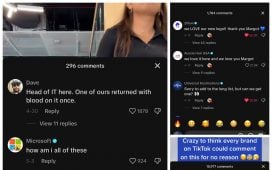In a country without cinemas, nightclubs or any places where young men and women can mingle, youngsters in Saudi Arabia have to be creative when filling their free time.
But far beyond the thrill of car sand surfing and dune bashing, many young Arabs are enjoying a more raucous underground lifestyle behind closed doors. While these antics are deemed illegal in the country, they are only becoming more prevalent.
If this is true, how is Arab youth culture in such a closed environment such as Saudi Arabia being reflected in advertising campaigns?
One local, who wishes to remain anonymous, says for the most part it never is.
“Brands don’t really know how to market the true lifestyle of Saudi youngsters – advertising in Saudi is terrible. It’s cheesy and over done. It hasn’t progressed over the past 10 years. They prefer to stick to the same idea instead of coming up with something new. They don’t take risks, which is ironic
considering so many Saudis take risks every day.”
But can any good come from the lack of Saudi teens being represented in ads?
He adds: “There is no freedom in Saudi or many things to do but there is a new generation of people that want to express themselves even if advertisers are not willing to do the same.
“These kind of extreme activities stem from boredom and also because they are limited to a certain way of thinking and who they talk to and the way they work. There is just not much to do especially when it’s a closed culture run by strict laws. Some Saudis are rebellious – some like it when 10 police officers are driving behind chasing them.
“There are certain types of people in Saudi – working class, middle class and the rich. Money can take you to other countries where you can have fun. It’s the working class that can find it difficult.
“The government might not want women and men to mix but there are still ways around it. A man might be attracted to a woman in the shopping
centre. He can’t talk to her there – it would get him into trouble but they will find a way to exchange numbers and speak on the phone. That might happen in a few days or few months. Then they will find somewhere to meet away from home – that’s where youngsters will have their parties.
“I was talking to my teenage cousin who lives in Saudi too and he was telling me about this great party he went to here. There were girls and boys there, alcohol available and a decent DJ. Almost everyone does it here – even though it’s illegal. There is a longing to live like any normal teenager.”
For artist Semaan Khawam, graffiti covering the walls of Lebanon is advertising in itself, with a thirst among young Arabs to spray paint for artistic rather than political expression.
Khawam hit international headlines last year when he was caught spray-painting graffiti depicting soldiers on the walls of Lebanon. He refused to pay an on-the-spot fine and sign a police statement agreeing to refrain from public graffiti art.
He was subsequently charged with “disturbing the peace” and taken to court where he was found not guilty and no further action was taken.
But while his graffiti was politically-driven, Khawam says youngsters make art for arts’ sake without political or didactic purpose.
Semaan says: “I know that some companies have used graffiti art for their own business – it’s something we used to do a long time ago. It started with a simple spray can and putting your name on a wall and painting something. It’s conservative in Lebanon and we don’t have many local brands here. I know that many people use graffiti art to make money – pubs and restaurants will ask graffiti artists to paint their walls – it’s a business for many people here.”
Most of the work for big brands, however, is done outside of Lebanon.
“For young people, graffiti is art and it’s a business. They are not concerned about public problems – you don’t see them in rallies. They are not activists. They do it because it’s art and they enjoy it.
“My purpose for graffiti art is different. It’s political. I use graffiti to say what’s on my mind concerning the need for political answers in society. I use graffiti art if I want to say something against the regime. It’s like a message to the people.”
Speaking about the court case, he says: “I won – I refused to pay the fine and went to court but I won the case. A lot of graffiti artists didn’t agree with me and told me to pay the fine. But it’s my right to use graffiti art especially when I want to say something against the regime.
“There is so much culture in Lebanon and graffiti art is part of that. It’s everywhere in Lebanon. It’s a way of life and there is so much talent. I really think brands should be doing more to showcase the talent of young people here.”
Meanwhile behind the chaos of Egypt’s revolution, there has been a revolution in rock and heavy metal music, which has been pumping through the country’s underground streets and is followed by a troop of loyal fans.
But how are advertisers reaching out to them amidst the turmoil and transition?
Adham Kafafy, vocalist of heavy metal band The Anarchy, says: “Heavy metal has been a very sensitive kind of music, especially in Egypt, but the fans are very loyal. If fans see a vocalist using a brand or hear them say it is a good brand, the fans will help the brand. They are very loyal. That is the difference between fans of metal and the ones from other kinds of music. The kinds of brands that use Egyptian heavy metal are energy drinks, like Red Bull or sound equipment companies for amplifiers for example. There needs to be some kind of connection between the brand and type of music. It does depend a lot on what the product is, but there is no harm in brands branching out to reach a wider audience of music fans and offer something different.”
Just as music has led to a raft of followers in Egypt, so has hip-hop as a dominant culture across the UAE. Lynn Fattouh, an account executive at Saatchi & Saatchi and also known as Malikah, the ‘Queen of Arab hip-hop’, says advertisers and agencies are only touching the veneer of the region’s youth population.
“Brands don’t always get it right and a lot of negative things are said about Arabic hip-hop. Young Arabs are trying to find their identity. They are not like the people who are fighting wars, they are well educated and conservative. Ever since the internet was introduced younger generations are becoming much more open minded and developed.
“They are trying to find ways of expressing themselves – it’s about sending an unconscious message to the world that we are different.
“I think at a certain point we are still stereotyped as being Arabs who are cold-hearted and disconnected from the rest of the world, but actually we’re far from it. We’re facing a revolution and it’s not a negative one. Rapping is about creating peace through art. Brands realise that the youth are changing and their older ways of approaching them is wrong. Brands have tried to connect with them but have failed because they don’t do enough market research. They don’t have the right people who know the market. There needs to be people who have extensive knowledge about the youth Arab market but they don’t. They need to get to know the youth properly.”
Fattouh, who was born in Marseilles to Lebanese and Algerian parents and grew up in Beirut, adds: “Arabic hip-hop is massive but brands generalise too much – they dress someone up in big pants and with big chains and have someone rap in Arabic. It’s more American – I don’t relate to that. I would feel offended by that. Market researchers need to think like the youth do. I really believe in this otherwise you lose people by misrepresenting them.
“If people can’t relate to the brand they are less likely to use it. Youngsters are inspired by what I rap about. My message is what they can relate to. They trust me more than they trust brands.
“Red Bull were able to do this. I would get into an argument if people didn’t think it was good. It’s the only brand that stood out for me and supports the youth. When I see that I want to embrace it and stand up for the brand. Market researchers need to think about building relationships with young people and understand them – when there is no effort being made it’s like two people who just met.
“Brands don’t represent Arabs as they truly are – they are honest, welcome everyone, they don’t lie or back stab anyone and they are about peace. This is what a real Arab is. It gets confused with those who are corrupted – youngsters want to say they are not corrupt but that they are Arab.”
So will brands ever be able to tap into Arab youth culture, or will they be forever playing catch-up and refuse to take risks?
Hip-hop artist Illmiyah, of UAE-based Desert Heat, believes advertisers must change the way they approach campaigns designed for the Arab youth market. “Hip-hop has become such a dominant culture that brands are almost forced into introducing it into their marketing campaigns. It started out with cheesy commercials using stereotypical rap, which felt forced and unnatural. It’s quite challenging for brands to get it right.
“Most of the times you have senior executives controlling advertising scripts who obviously have not lived the hip-hop culture and know not much about it to be able to produce a decent commercial using hip-hop that the youth can relate to.
“I believe brands should really focus on and invest in hip-hop as an art form and culture.”









